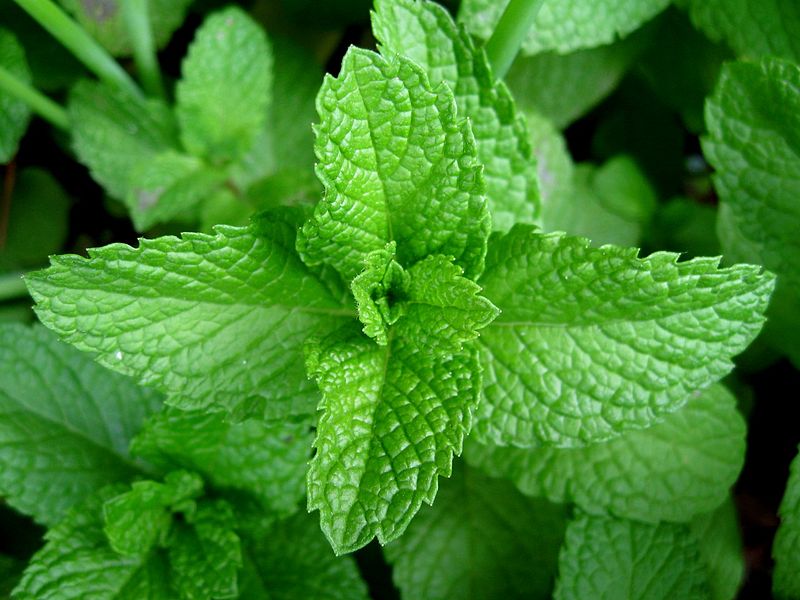Introduction:
Mint is a popular ingredient in several foods and beverages, ranging from teas and alcoholic drinks to sauces, salads and desserts.
While eating the plant offers some health benefits, research shows that several of mint’s health benefits come from applying it to the skin, inhaling its aroma or taking it as a capsule.
1/3 cup or half an ounce (14 grams) of spearmint contains (1):
- Calories: 6
- Fiber: 1 gram
- Vitamin A: 12% of the RDI
- Iron: 9% of the RDI
- Manganese: 8% of the RDI
- Folate: 4% of the RDI
Mint is a particularly good source of vitamin A that is critical for eye health and night vision. It is also a potent source of antioxidants, especially when compared to other herbs and spices. Antioxidants help protect your body from oxidative stress, a type of damage to cells caused by free radicals.
Improves Irritable Bowel Syndrome:
(IBS) is a common digestive tract disorder. It is characterized by digestive symptoms like stomach pain, gas, bloating and changes in bowel habits.
Although treatment for IBS often includes dietary changes and taking medications, research shows that taking peppermint oil as an herbal remedy might also be helpful.
Peppermint oil contains a compound called menthol, which is thought to help alleviate IBS symptoms through its relaxing effects on the muscles of the digestive tract
May Help Relieve Indigestion
Mint may also be effective at relieving other digestive problems such as upset stomach and indigestion. Indigestion may occur when food sits in the stomach for too long before passing into the rest of the digestive tract. Multiple studies have shown that food passes through the stomach quicker when people take peppermint oil with meals, which could relieve symptoms from this type of indigestion
Could Improve Brain Function;
In addition to ingesting mint, there are claims that inhaling the aroma of essential oils from the plant could provide health benefits, including improved brain function.
Smelling the aroma of peppermint oil for five minutes prior to testing produced significant improvements in memory
May Decrease Breastfeeding Pain
Breastfeeding mothers commonly experience sore and cracked nipples, which can make breastfeeding painful and difficult. Studies have shown that applying mint to the skin can help relieve pain associated with breastfeeding.
Subjectively Improves Cold Symptoms
Many over-the-counter cold and flu treatments contain menthol, a primary compound in peppermint oil. Many people believe menthol is an effective nasal decongestant that can get rid of congestion and improve airflow and breathing.
May Mask Bad Breath
Mint-flavored chewing gum and breath mints are some of the first things people reach for when trying to prevent or get rid of bad breath. Experts agree that most of these products can mask foul-smelling breath for a few hours. However, they only cover up bad breath and don’t reduce the bacteria or other compounds causing bad breath in the first place
Conclusion:
Mint makes a delicious and healthy addition to many foods and beverages. Although mint is easy to add to many dishes, research demonstrating its health benefits has mainly used mint taken in capsules, applied to the skin or inhaled via aromatherapy.
Mint’s health benefits range from improving brain function and digestive symptoms to relieving breastfeeding pain, cold symptoms and even bad breath.
